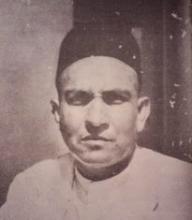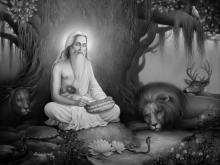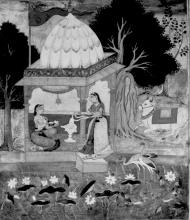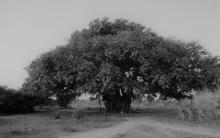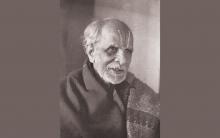Author:hari
The Story of Dharmavyādha
In the past, when a certain sage who was wandering through a forest and sat down below a tree, a balāka bird’s droppings happened to fall upon him. He was enraged and stared at the bird angrily. As soon as his eyes fell on the bird, it got reduced to ashes. He felt proud of the strength of his tapas.
One day, he sought alms at the house of a brāhmaṇa in the city. The lady of the house said – “Please wait for a while; I will finish serving my husband and attend to you!”
The Kannada literary world was familiar with two works of the poet Janna[1], namely - Anantanātha-purāṇa and Yaśodhara-carita. Shastry published yet another work of Janna called Anubhavamukura, which runs to about 109 verses. The work is based on smara-tantra, i.e., kāma-śāstra. The publication of this work was an important contribution to the world of Kannada literature. It opened new doors for the study of the poet and his works.
When Devasomā interrupts to say this isn’t the way of buddhists or jains (अर्हन्त can apply to both), Satyasoma scolds them saying that they are fools who contradict their own stand by saying pain leads to pleasure while thinking that the nature of the effect is the same as that of the cause. During this and even later, it is evident that Satyasoma even though drunk and unsteady still has a sharp intellect which hasn’t been affected by the drinking, even while drunk his logic is incisive.
Candrasvāmin met Siṃhadaṃṣṭra, a śabara chief and asked him for a water source nearby, he called his men and said, ‘Show him water!’ They took him to their village and tied him up. He understood he had been deceived. Thinking about his children’s future if he is killed and offered as a bali he started worshipping Sūrya. A voice from the sky told him, ‘Candrasvāmin, you won’t be killed; you’ll reunite with your children!’ The children meanwhile waiting for their father, afraid, started crying.
Languages and meters
While nothing of value is added by mentioning what has been discussed by both Dr N P Unni and Dr S Ramaratnam, just for the sake of completion, here is the list of meters and languages used. Even in a small work the author has shown versatility in usage of languages and meters which can be gathered by a cursory glance of the lists below.
Metres: Anuṣṭup, Āryā, Indravajra, Rucirā, Mālinī, Vaṃśasthā, Vasantatilakā, Śārdūlavikrīḍitā, Sragdharā.
High-water Mark of Critical Examination
The forewords that Sarma wrote to some of the books in Telugu and Kannada have turned out to offer an excellent, holistic view of the entire subject rather than being mere introductory words of formality that appear at the beginning of the book. His forewords to books have been published as a separate volume.



